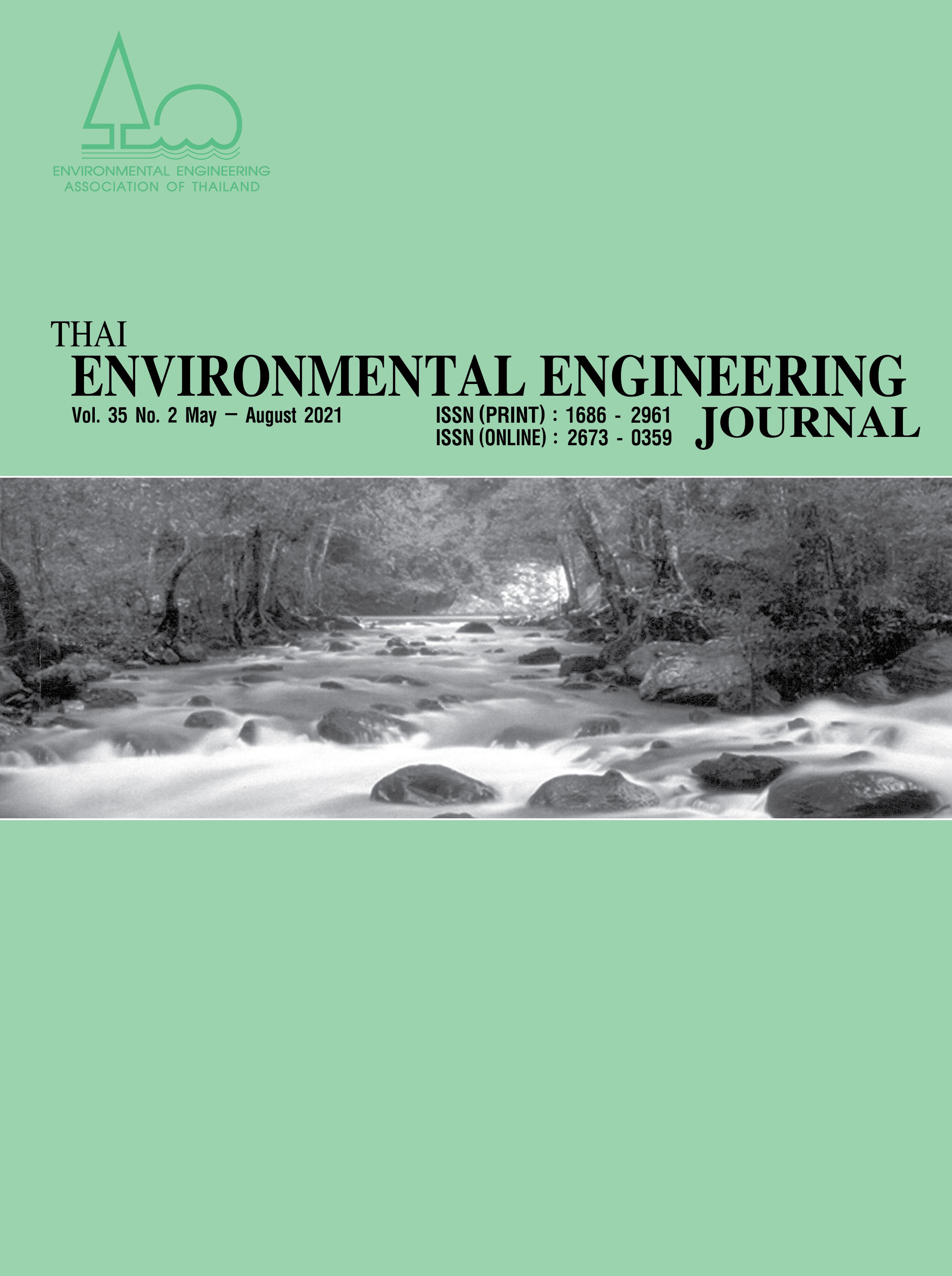Evaluation of Alternative Municipal Solid Waste Management Option Towards Circular Economy and Smart City Model
Main Article Content
Abstract
The increasing urbanization is a great challenge for city development and management. One major problem is the rising amount of municipal solid waste due to food product demand and other living essentials. One of the Circular Economic's concepts is keeping products and material in use, so adding a sorting list and extracting more items can reduce waste before ending up at the landfill. Therefore, to understand a variety of characteristics and composition of waste for proper waste management. This research main identifies waste composition and develops the material flow diagram of integrated municipal solid waste by applying the alternative model towards Circular economics. Chiang Mai University had been selected as a study area and represented the Smart City model. The generated waste averaged 10.2 Ton per day of area 2,493 rai and 144 grams per day per person. The waste composition is organics, plastic, paper, general, metal, glass, and hazardous waste as ratio 59:15:12:10:2:1:1, respectively. Applying the integrated material flow diagram shows the overall base case and offers two alternatives for waste management. Although the increasing capacity of IBMC is a practical solution that causes sorting and separating by machine as increasing recycling rate 14.5%. And the implementation of circular practice is prompt as increasing recycling rate 7.2%. The benefit of the model and alternative demonstration of waste management based on Ching Mai university can also be applied to work with various organizations, communities, and cities.
Article Details
References
Pollution Control Department. 2021. Thailand Environmental Quality Situation in 2020. Available from: https://www.pcd.go.th/pcd_news/11873/
Ellen MacArthur Foundation. 2021. Circular economy Concept. Available from: https://www.ellenmacarthurfoundation.org/circular-economy/concept.
Hodkinson, G., Galal H., and Martin C. 2018. Circular Economy in Cities Evolving the model for a sustainable urban future, in Circular Economy in Cities., World Economic Forum. Date 8 March 2018
CMU Corporate Communication and Alumni Relations Center. 2017. CMU 1 in 7 Smart City Model – Clean Energy (Smart City-Clean Energy). Chiang Mai University. Available from: https://prcmu.cmu.ac.th/images/mag/data-180721101006.pdf.
Energy Research and Development Institute – Nakornping. 2019. Integrated Biomass Management Manual., Chiang Mai University.
ifu Institut für Umweltinformatik Hamburg GmbH. 2021. e!Sankey show the flow. Available from: https://www.ifu.com/en/e-sankey.
Tetra Pak. Thai Green Roof. 2021; Available from: https://www.tetrapak.com.
TPBI Public Company Limited. WON project. 2021; Available from: https://www.tpbigroup.com/investor-relations/sustainable-development/won-project.
@PreciousPlasticBKK • Waste Management Company. 2021. Precious Plastic Bangkok.; Available from: https://preciousplastic.com.


